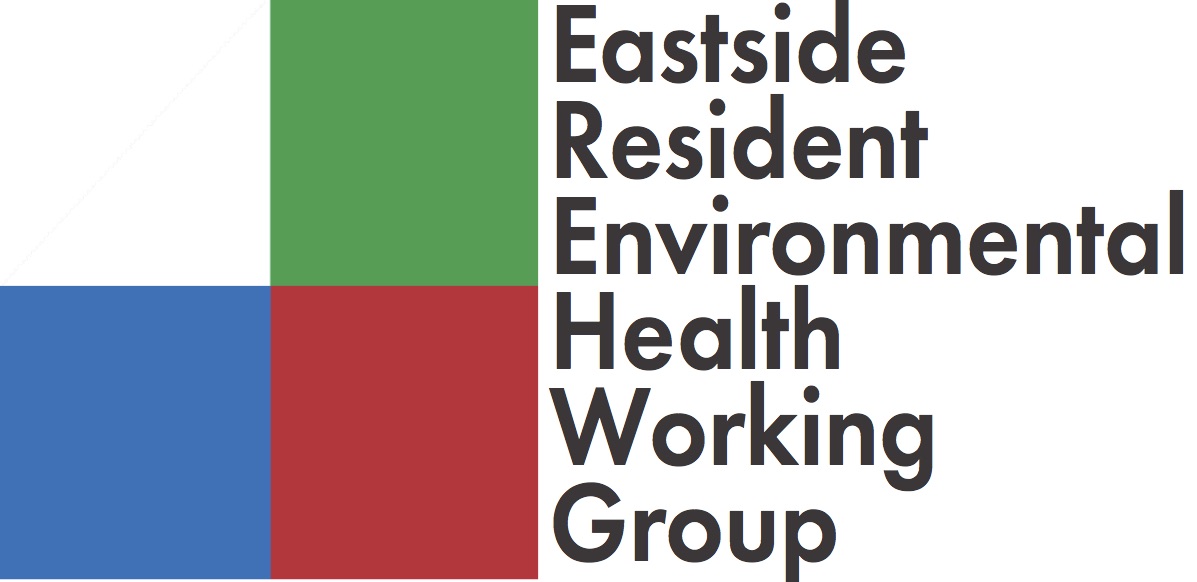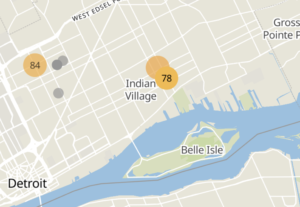Environmental Analysis

Download this Info SheetDownload
The MDEQ has extended the public comment period through Tuesday, April 23, 2019.
Details on submitting public comment and more details about the permitting process: http://www.deq.state.mi.us/aps/cwerp.shtml?fbclid=IwAR3gbkBhslPQABUxZmbcndxRdmKSyUqU28jd7kdHdhXnjAG2BSrNBI3iHAsE
Fiat Chrysler Expansion Environmental Concerns
The air pollution in the FCA Impact Area is comparable to Zip Code 48217, one of the most polluted in Michigan.
Our neighbors in Southwest Detroit have been infamously impacted by poor air quality around Marathon Petroleum and other industrial facilities. Based on the EPA’s EJScreen Reports we’ve found Environmental Indicators in the FCA Impact area that are comparable in value to those in Southwest Detroit.FCA Impact Area ejsceen_reportDownloadSW Detroit ejsceen_reportDownload
https://ejscreen.epa.gov/mapper/index.html?wherestr=48215
The population of the FCA Impact Area has some of the highest Asthma hospitalization rates in the city.


https://www.michigan.gov/documents/mdhhs/Detroit-AsthmaBurden_516668_7.pdf
In 2016, FCA’s Jefferson North nearly doubled the tons of VOC produced by Marathon Petroleum!
Volatile Organic Compounds react with nitrogen oxides in the air to create ozone, or “smog.” Ozone can cause respiratory-related health impacts, including the aggravation of asthma.

FROM Great Lakes Environmental Law Center
4444 2nd Avenue, Detroit, MI 48201 (313) 782-3372 www.glelc.org
2019_04_15_FCA US LLC Fact SheetDownload
1. Why is FCA US LLC seeking a new permit to install?
Fiat Chrysler currently owns and operates the Mack Avenue Engine Plant complex at 11570 Warren Avenue East in Detroit. They are seeking a “permit to install” from the Michigan Department of Environmental Quality to modify the plant to operate a new assembly line instead of an auto engine manufacturing facility. To operate its new assembly line, FCA US LLC must repurpose the existing plant and construct a new paint shop.
2. What air emissions will be result from the FCA US LLC’s proposal?
While it will emit other pollutants, it is estimated that the new assembly line will have the potential to emit a major amount of volatile organic compounds and greenhouse gases:
- Volatile Organic Compounds: The new assembly plant would have the potential to emit 382.5 tons of volatile organic compounds (VOCs) per year. VOCs are a class of chemicals, and are one of the ingredients for the formation of ozone, or “smog.” The VOC emissions from the new assembly plant would be caused by the new paint shop proposed by Fiat Chrysler.
- Greenhouse Gases: The new assembly plant will also have the potential to emit 118,876 tons per year of greenhouse gases.
3. How do volatile organic compound emissions relate to ozone?
Volatile organic compounds react with nitrogen oxides in the air to create ozone, or “smog.” Ozone can cause respiratory-related health impacts, including the aggravation of asthma. Wayne county, along with several other counties in southeast Michigan, were recently designated as “nonattainment” area because an air quality monitor detected levels that were above the national, health-based air quality standard for ozone.
4. What regulations does FCA US LLC have to comply with to receive their permit?
Since the assembly line will emit a significant amount of VOCs, and is located in an area that is failing to comply with the national air quality standard for ozone, FCA US LLC must satisfy a number of regulations, including the following:
- Must demonstrate why the proposed location and methods are superior to alternatives.
- Emissions of VOCs from the facility must comply with the “lowest achievable emission rate” based on existing pollution control technology and methods.
- Must offset the increase in VOC emissions with a reduction in emissions from another source in the nonattainment area.
FROM Great Lakes Environmental Law Center
4444 2nd Avenue, Detroit, MI 48201
(313) 782-3372 www.glelc.org
Thank you to GLELC!
Impact Area Resident Demands
An exhaustive Health Impact Assessment of the FCA Impact Area and all related projects made available to the residents.
Residents need to have a full report on the impact of this project on our health and well-being.
Installation of the best filters on stacks that will help to reduce hospitalization rates based on Asthma.
With some of the highest hospitalization rates in the city, we demand the best filtration systems available. We are worth it.
Specific targeted community health funds for vulnerable people dealing with asthma and other health impacts. We also want air filter installation in local schools, churches and community centers along with specific funding for home air HEPA filters.
The creation of an Community Air Monitoring Project and Environmental Community Council for ongoing monitoring and advocacy around environmental impacts on community health.
Based on the “48217 COMMUNITY AIR MONITORING PROJECT” See: https://www.michigan.gov/documents/deq/deq-aqd-amu-48217_air_monitoring_report_621859_7.pdf

